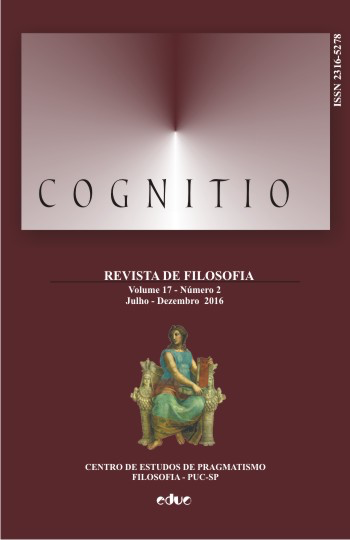É possível estarmos conscientes da atividade originária da consciência? Uma análise da dedução transcendental a partir de Kemp Smith
Palavras-chave:
Síntese transcendental, Dedução, Kant, ConsciênciaResumo
No presente trabalho, nos concentraremos na tese da dedução transcendental (A) e buscaremos analisar a questão acerca da atividade sintética originária da consciência: é possível estarmos conscientes dessa atividade transcendental? Para isso, exporemos o motivo de termos privilegiado a dedução (A), a partir da interpretação de Kemp Smith; investigaremos como surge, na modernidade, o problema acerca da constituição da consciência; e, por fim, analisaremos como esse problema é posto, especificamente, na dedução subjetiva, relativamente à tese principal estabelecida por Kant na dedução como um todo. É na dedução subjetiva que surge a questão acerca da constituição transcendental da unidade da consciência – unidade sintética essa que está contida nas formas puras da sensibilidade e nos conceitos puros do entendimento. Afinal, podemos descrever os processos que constituem a síntese transcendental do mesmo modo como podemos descrever os processos sintéticos empíricos? Por fim, argumentaremos que, embora essa questão se enquadre no projeto crítico enquanto tal, ela não pode ser analisada com os elementos teóricos que estão dispostos no mesmo.Métricas
Carregando Métricas ...
Downloads
Publicado
2017-02-04
Como Citar
Pereira, R. M. (2017). É possível estarmos conscientes da atividade originária da consciência? Uma análise da dedução transcendental a partir de Kemp Smith. Cognitio: Revista De Filosofia, 17(2), 337–348. Recuperado de https://revistas.pucsp.br/index.php/cognitiofilosofia/article/view/31238
Edição
Seção
Artigos Cognitio









